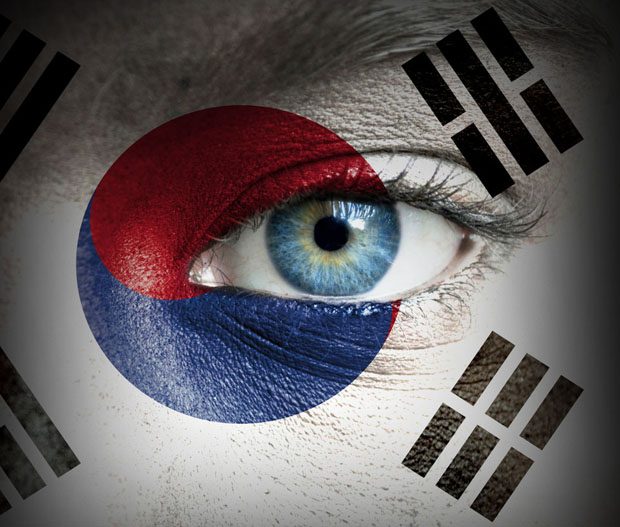
(Image: Aleksandar Mijatovic/Shutterstock)
South Korean prosecutors currently seeking a whopping 20 years imprisonment for lawmaker Lee Seok-ki on charges including praising North Korea. On 3 February, the Korean Supreme Court overturned a partial acquittal of a man charged with praising North Korea; that same day a 74-year-old man was given a sentence of two-and-a-half years for similar activities. On 28 January a man was sentenced to ten months in prison for posting pro-Pyongyang messages in an obscure online cafe.
These are some of the latest in a spate of recent cases which indicate that the South Korean government is more strictly enforcing its controversial National Security Law (NSL). Article 7 of the law long criticised as an unjust limit to freedom of expression, prescribes legal punishment for “any person who praises, incites or propagates the activities of an anti-government organisation”. What constitutes praise, incitement or propagation is not clearly defined.
While supporters say the NSL is necessary to protect a fragile peace against the North Korean threat, critics say the threat of North Korean infiltration is exaggerated and the law is really meant to stifle dissent within the country. Amnesty International said the NSL is “increasingly and arbitrarily used to curtail freedoms of association and expression”, while the United Nations special rapporteur for human rights defenders, Margaret Sekaggya, described the NSL as “seriously problematic for the exercise of freedom of expression”.
Recent years have seen cases where seemingly innocuous conduct led to criminal prosecution, notably the case of Park Jung-geun, who was indicted in 2012 on criminal charges for retweeting messages from North Korea’s official Twitter account. Between 2008 and 2011, the number of NSL cases shot up by 95.6 percent, according to an Amnesty report released in December 2012. Last year 103 people were charged with violating the law, the highest figure in ten years.
The charges against Lee Seok-ki were laid in spring of last year when Seoul and Pyongyang were engaged in a war of words that had many wondering if actual war was imminent. The main charge against him is making plans to help North Korea win in the event of a war. However, he is more likely to be convicted according to the NSL for praising North Korea at a meeting, referring to North Korea’s leadership using honorific titles. To be convicted of assisting North Korea during a war prosecutors would have to show that Lee’s plans were practicable, which is unlikely.
The NSL was instituted in the late 1940s, in the time between Korea’s colonial occupation by Japan and the start of the Korean War, ostensibly to protect South Korea from infiltration by North Korean spies. The combat phase of the Korean War ended with an armistice agreement in 1953, but no peace treaty was ever put in place, so the two countries technically remain at war. This enduring state of conflict has meant that the NSL has remained on the books as a limit to freedom of expression.
Throughout nearly all of its history, South Korea has been governed under something like a state of emergency, with the government arguing that due to the threat posed by North Korea, civil liberties needed to be suspended to maintain security and allow for economic development.
Last April, the country’s top legal authority, Justice Minister Hwang Kyo-ahn, defended use of the NSL in an interview with JTBC television. Hwang argued that pro-North Korea forces are plentiful in the South and that the NSL was needed as protection, saying: “A special kind of law is needed to defend against this special kind of crime”.
What Hwang didn’t mention is that the groups that voice these kinds of pro-North Korea statements are tiny, fringe outfits that almost no one takes seriously and have never had any real success. Critics say criminalising their statements only lends them an undue air of seriousness.
President Park Geun-hye and her cabinet are not a free speech-loving bunch, and are in office at a time of tense relations with North Korea, meaning that pro-North Korea activities are being taken seriously. Park herself is daughter of former South Korean president Park Chung-hee, a military dictator who suspended civil rights including freedom of speech in the name of national development.
The increased use of the NSL shows the durability of this logic, and the South Korean government’s steady position [means that] freedom of expression can be limited in the name of vague national objectives.
This article was posted on 12 February 2014 at indexoncensorship.org




